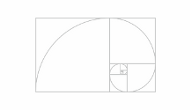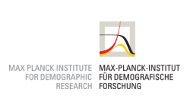This is the page of the Rostock Retreat on Data Visualization, which took place in June 2017.
Please click here to view the current retreat.
motivation
The Rostock Retreat is an experimental format for scholarly exchange that is designed to encourage communication and collaboration on specific themes in a relaxed atmosphere. The first retreat will focus on data visualization. This event will bring together data visualization professionals, enthusiasts, and eager learners for a series of inspirational keynotes, studio time, group challenges, and group critiques. We aim to inspire new ideas, hone skills, and have fun. We also hope to mix thoughtful visualizers of all levels (early students to senior researchers and professors) from the population sciences with a few participants from other fields, as well as facilitators and keynote speakers that will help provide reflection and form to what we're doing.
key note speakers
(in random non-informative order)
Michael Friendly, York University Toronto, datavis.ca
Dino Citraro, Periscopic, periscopic.com
James Cheshire, University College London, spatial.ly
outcome
After the Rostock Retreat we would like to create a special issue on data visualization in the population sciences in an open-access on-line journal. The first option will be the journal Demographic Research, which offers the submission of research material that can also contain animations, for instance. Stay tuned for further information on this around the time of the Retreat. In any case, submissions for this special issue are intended to contain the code that was used to create the visualization (where possible), the outcomes, and a short description.
program
| 09:30 | Arena session 1 Keynote talk 1 James Cheshire: The seven deadly sins of academic data visualization |
| 10:15 | Coffee break |
| 10:30 | Retreat session 1 Participants are split in groups of around eight people to discuss the visualizations submitted by the participants in the original Rostock Retreat application. |
| 12:30 | Lunch break |
| 14:00 | Viz data challenge session 1 Participants are split in groups to analyze a dataset that is given to them by the organizers. They are allowed to use modeling techniques, but results should be presented in visual form. |
| 16:00 | Coffee break |
| 16:30 | Viz slam session Participants get the opportunity to present some cutting edge visualizations independent of whether the potential for practical applications is clear (maximum 8-10 minutes per participant). |
| 18:00 | Dinner break |
| 19:00 | Presentation Anika Rasner: Data Visualization in Practice: The Government Report on Wellbeing in Germany |
| 09:30 | Arena session 2 Keynote talk 2 Michael Friendly: The past, present and future of data visualization: How lessons from the past inform what we do today, and how we can learn to do more or better in the future |
| 10:15 | Coffee break |
| 10:30 | Retreat session 2 |
| 12:00 | Arena session 3 General discussion of the outcomes of the retreat sessions. |
| 12:30 | Lunch break |
| 14:00 | Viz data challenge session 2 |
| 16:30 | Coffee break |
| 17:00 | Piazza session Poster session where participants can present and discuss their work in a relaxed atmosphere with food, drinks and open end. If you have interactive material let us know and we'll arrange for a large display for you. |
| 09:30 | Arena session 4 Keynote talk 3 Dino Citraro: Finding compelling narratives through the data exploration process |
| 10:15 | Coffee break |
| 10:30 | Presentations of the viz data challenge |
| 12:30 | Lunch break |
| 14:00 | Speed data-ing viz challenge Each participant provides a dataset (e.g., from own research), which is randomly assigned to another participant who prepares a visualization of the data |
| 16:00 | Coffee break |
| 16:30 | Presentations of the speed data-ing viz challenge (auditorium or cafeteria) |
| 18:00 | Beach barbecue in Warnemünde |
participation optional
Open format days. All participants are welcome to stay the full week. Participants get the opportunity to meet in the cafeteria, have open studio time, or schedule meetings with other participants or demographers from the institute; light food and drinks are provided. Further activities may be spontaneously organized for Thursday or Friday.
In the week preceding the Rostock Retreat event there will be a course on visualization in R as part of the IDEM course program of the Max Planck Institute for Demographic Research.
sample data
Most participants were selected based on one or two submitted visualizations. One of the submissions was based on their own work/research. Optionally (recommended), they could choose to submit in addition a visualization based on some aspect of any of the three publicly available datasets below:
- Anonymized individual microdata on internal migrations in Spain (official data, linked)
- Aggregate mortality data from the Human Mortality Database series for Sweden (hosted)
- Model genealogy data generated by SOCSIM microsimulation software (linked)
More details follow:
- Individual-level migration register data for Spain is available for download on the following page: www.ine.es. For your convenience, we provide for the 2015 file some R code (open source software) Prepare.r and a complementing csv-file with extraction information Extract.csv, which may assist you in transferring the ASCII-coded data into a csv-file. Documentation of the available variables is provided in the file Description.xlsx, with translation into English.
- Swedish data from the Human Mortality Database (www.mortality.org) are provided in a modified format based on the original datasets called mltper_1x1, fltper_1x1, Exposures_1x1.txt, and Deaths_1x1.txt. This includes all lifetable columns, as well as death counts, exposures, and raw death rates. See the country-specific documentation, or the HMD Methods Protocol for more information on how these data are produced, and how to interpret the lifetable columns, if need be. The provided file is simply SWE.csv. By using this data, you agree to the user agreement: www.mortality.org.
- SOCSIM is classic microsimulation software. Its output is just simple text files. Information on this project is hosted by the Berkeley Demography Lab, here: lab.demog.berkeley.edu. Download the zipped example project 3, called 'Fertility Decline and Marriage Squeeze', which contains a subfolder called /SimResults, holding the files squeeze.opop, and squeeze.omar. Together, these two files contain all the information required to reconstruct any kin relationships present in the data. Further information on how to work with these data is found in the SOCSIM documentation, and in the MarriageSqueeze.pdf document, included in the zipped project.

